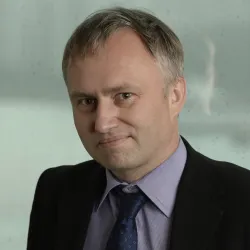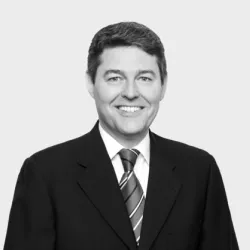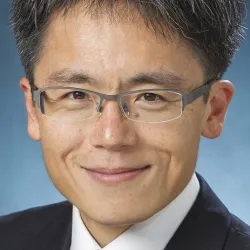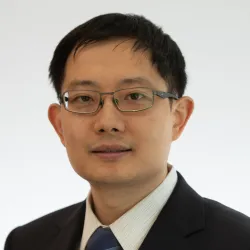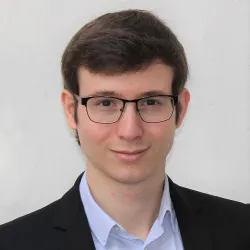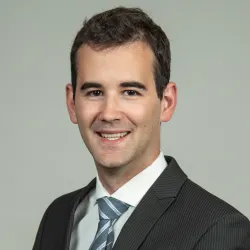Programme
Programme
Programme
09:00 – 09:05
Chairperson's opening remarks
09:25 - 09:30
Blake Evans-Pritchard is bureau chief, Asia, for Risk.net based in Hong Kong. Before taking on his current role, he spent three years covering regulatory issues across Asia for Risk.net, including implementation of Basel III and other international standards in regional jurisdictions. Previously, he spent five years in Brussels writing about the European Union’s financial services sector and competition policy and a number of years as Africa editor for a news service covering post-conflict restitution around the world.
09:05 – 09:35
Machine learning for asset managers
Keynote address
09:30 - 10:00
Prof. Marcos López de Prado is the CIO of True Positive Technologies (TPT), and Professor of Practice at Cornell University’s School of Engineering. He has over 20 years of experience developing investment strategies with the help of machine learning algorithms and supercomputers. Marcos launched TPT after he sold some of his patents to AQR Capital Management, where he was a principal and AQR’s first head of machine learning. TPT is currently engaged by clients with a combined AUM in excess of $1 trillion. Marcos also founded and led Guggenheim Partners’ Quantitative Investment Strategies business, where he managed up to $13 billion in assets, and delivered an audited risk-adjusted return (information ratio) of 2.3.
Concurrently with the management of investments, since 2011 Marcos has been a research fellow at Lawrence Berkeley National Laboratory (U.S. Department of Energy, Office of Science). He has published dozens of scientific articles on machine learning and supercomputing in the leading academic journals, is a founding co-editor of The Journal of Financial Data Science, has testified before the U.S. Congress on AI policy, and SSRN ranks him as the most-read author in economics. Marcos is the author of several graduate textbooks, including Advances in Financial Machine Learning (Wiley, 2018) and Machine Learning for Asset Managers (Cambridge University Press, 2020).
Marcos earned a PhD in financial economics (2003), a second PhD in mathematical finance (2011) from Universidad Complutense de Madrid, and is a recipient of Spain's National Award for Academic Excellence (1999). He completed his post-doctoral research at Harvard University and Cornell University, where he is a faculty member. Marcos has an Erdős #2 according to the American Mathematical Society, and in 2019, he received the ‘Quant of the Year Award’ from The Journal of Portfolio Management.
09:35 – 10:15
Understanding the different approaches to Ibor & modeling
10:00 - 10:40
- The Dynamic modeling of SOFR
- Alternatives to implied volatility
- Ibor fallbacks and quantitate finance
Sebastien Hitier is the global head of credit quantitative modelling at BNP Paribas.
Since 2006, he creates models for the pricing, risk management and relative value of financial instruments and the development of the infrastructure required to provide such services.
Prior to this, he did similar work for JPMorgan. Sebastien studied applied mathematics at Ecole Centrale Paris.
George Hong is head of platform and quants at Credit Suisse, based in Hong Kong. He holds an B.A. in Mathematics and a Ph.D. in Mathematical Finance from Cambridge University.
Liang Wu is an Executive Director of Financial Engineering and heads up CrossAsset Product Management at Numerix. Wu has previously served as VP of Financial Engineering in the Client Solution Group at Numerix. Before joining Numerix in 2015, he worked at CME Group and HSBC in Pricing and Valuation, and Model Review roles. He holds an MSc degree in Financial Engineering from Columbia University, an MSc degree in Space Physics from Rice University and a BSc degree in Geophysics from University of Science and Technology of China.
10:15 – 10:30
Morning networking break
10:40 - 10:55
10:30 – 10:55
ESG and Sentiment Data with Machine Learning to Improve Volatility Forecasting Models
11:15 - 23:30
- Building alternative data indicators of Sentiment & ESG based on Natural Language Processing on news, blogs, social discussions
- Forecasting the STOXX600’s least & most volatile stocks
- Leveraging these technologies to:
- Build quantitative strategies
- Provide quantitative and discretionary ESG insights as alerts and scores
Sylvain is the co-founder and CEO of SESAMm, an innovative fintech company specializing in big data and artificial intelligence for investment.
Its team builds analytics and investment signals by analyzing billions of web articles and messages using natural language processing and machine learning, the core technologies behind SESAMm products TextReveal and SignalReveal.
Holding a double degree in engineering made in France and Germany, Sylvain's passion for artificial intelligence and finance led him to create SESAMm in 2014.
The company has offices in Paris, New York, Tokyo, and Tunis and works with major hedge funds, banks, and asset management clients around the world for both fundamental and quantitative use cases.
Damien joined LFIS in December 2019 as a quantitative analyst. He’s in charge of the development of LFIS quantitative ESG strategies.
Previously, he worked for 5 years within the financial engineering of La Française Global Investments where he was responsible for structured product pricing.
Damien started his career in 2012 at BNP Paribas in the credit derivatives desk and at Exane as assistant trader on equity indices. Damien graduated from Ecole des Mines de Paris.
10:55 – 11:20
Managing model risk in time of crisis
10:55 - 11:15
Financial institutions rely on a huge number of analytical models, which are typically constructed under the assumption that the future will follow the pattern history suggests. However, it may not work anymore in a crisis environment. Join our session to explore:
- 101 ways a model can fail
- What a financial institution can or should do in an environment lack of regulatory enforcement
- Current market trends in relation to the governance of 'traditional & non-traditional' models
- How senior management buy-in & technology can combine to mitigate the effects of model risk
Lu Yin’s primary focus at SAS is on the measurement and management of Non-Financial Risks, such as Model Risk, Operational Risk, and Data Risk to name a few. She has extensive experience working across the ASEAN region gained through working as a Quantitative Analyst at KPMG & Accenture. She’s also previously worked in house at Standard Chartered Bank as a Model Validator (focusing on Market & Liquidity Risks). She holds a PhD in Quantum Physics and is experienced in risk management and quantitative modeling.
11:20 – 14:00
Networking break
11:30 - 14:00
